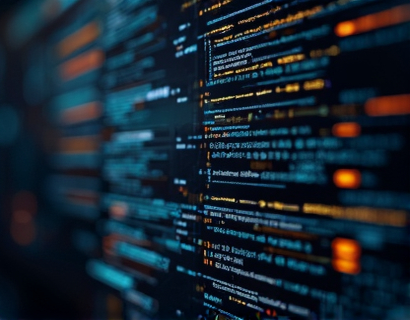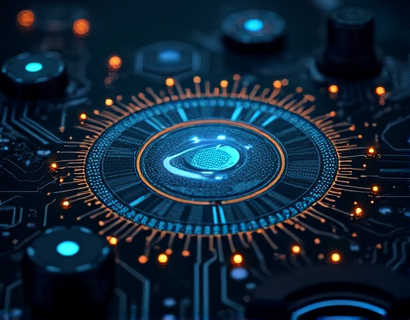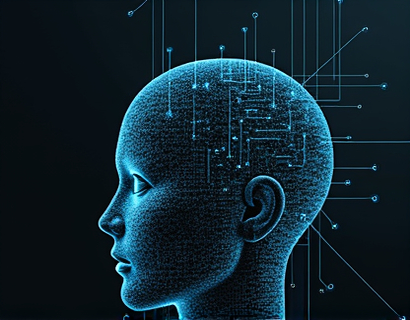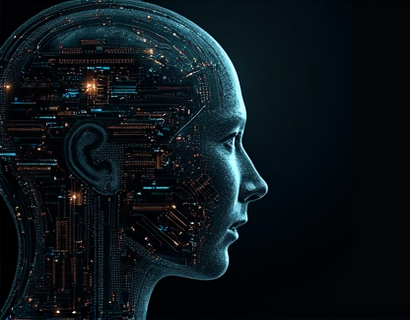AI-Driven Poker Education: Unlocking Success for All Skill Levels
In the world of poker, the intersection of skill, strategy, and psychology creates a complex game that challenges even the most seasoned players. For poker enthusiasts and learners alike, the journey to mastering this game can be daunting, especially with the vast array of strategies and nuances involved. However, the advent of AI-driven learning tools is revolutionizing the way players of all skill levels approach the game. This article delves into how intelligent learning platforms are transforming poker education, providing a comprehensive range of resources that cater to everyone from beginners to experts.
Understanding AI-Driven Poker Education
AI-driven poker education leverages advanced algorithms and machine learning to create personalized learning experiences. These platforms analyze a player's gameplay data, identifying strengths and weaknesses, and tailor educational content accordingly. The goal is to provide a dynamic and adaptive learning environment that evolves with the player, ensuring continuous improvement and skill enhancement.
The integration of AI in poker education is not just about providing tips and strategies; it's about creating a holistic learning system. This system includes video tutorials, interactive simulations, real-time feedback, and community forums. Each component is designed to address different aspects of poker mastery, from basic rules to advanced strategic play.
Benefits for Beginners
For newcomers to poker, the learning curve can be steep. Traditional methods often involve trial and error, which can be both time-consuming and costly in terms of chips. AI-driven platforms change this by offering a structured learning path. Beginners can start with the fundamentals, such as understanding the rules, poker hand rankings, and the value of different cards. Interactive tutorials guide players through these basics, ensuring a solid foundation before moving on to more complex concepts.
One of the key advantages of AI-driven education for beginners is the ability to practice in a risk-free environment. Simulated tables allow new players to apply what they've learned without the pressure of real money. This not only builds confidence but also helps in developing good habits and decision-making skills. Additionally, AI can provide instant feedback on decisions, helping beginners learn from their mistakes in real-time.
Intermediate Players: Refining Strategies
As players progress, the game becomes more nuanced, and the need for advanced strategies becomes apparent. Intermediate players can benefit greatly from AI-driven platforms that offer in-depth analysis of their gameplay. These platforms use machine learning to identify patterns in a player's decisions, highlighting areas for improvement.
For instance, AI can analyze a player's tendency to fold too frequently or raise too aggressively. It can then provide targeted lessons on how to adjust these tendencies based on the situation at the table. This personalized feedback is invaluable, as it helps players refine their strategies in a way that traditional coaching might not be able to match.
Moreover, AI-driven platforms often include database-driven insights into opponent playstyles. By studying the tendencies of other players, intermediate players can develop more effective strategies to exploit these weaknesses. This level of strategic depth is crucial for advancing in the game and staying competitive.
Advanced Players: Mastering the Game
For seasoned poker players, the challenge lies in maintaining and enhancing their expertise. AI-driven education platforms offer advanced tools and resources that cater to this demographic. One such tool is the ability to analyze large datasets of historical gameplay, including professional tournaments. This allows advanced players to study the highest level of play and learn from the best.
Another feature is the simulation of complex scenarios that mimic real-world tournament conditions. These simulations can include varying table dynamics, opponent ranges, and even psychological factors. By practicing in these simulated environments, advanced players can hone their skills and prepare for the unpredictable nature of live tournaments.
AI can also assist in developing custom training programs based on a player's specific goals. Whether it's improving pot odds calculation, mastering bluffing techniques, or optimizing stack management, AI-driven platforms can create tailored plans to help players achieve their objectives.
Real-Time Feedback and Analysis
One of the most powerful aspects of AI-driven poker education is the real-time feedback and analysis. As players make decisions at the table, the AI system continuously evaluates their choices, providing immediate insights. This instant feedback loop is crucial for reinforcing good habits and correcting bad ones on the spot.
For example, if a player makes a suboptimal bet, the AI can explain why this decision was flawed and suggest alternative actions. This immediate correction helps players internalize the correct approach, leading to better decision-making in future hands. Over time, this continuous learning process significantly enhances a player's overall skill level.
Community and Support
Beyond individual learning tools, AI-driven poker education platforms often include vibrant community features. Online forums, discussion boards, and live chat rooms connect players from all skill levels, fostering a collaborative learning environment. Beginners can seek advice from more experienced players, while advanced players can share insights and strategies.
These communities are moderated by AI to ensure a positive and informative atmosphere. The AI can recommend relevant topics based on a user's interests and skill level, ensuring that the community remains a valuable resource for continuous learning. Additionally, AI can facilitate matchmaking for live sessions, connecting players with similar skill levels or those looking to challenge themselves.
Psychological Aspects of Poker
Poker is not just a game of cards; it's also a battle of minds. The psychological aspect of the game can be as important as the strategic one. AI-driven education platforms recognize this and offer resources to help players understand and manage their mental game.
Through interactive modules and guided exercises, players can learn about common psychological pitfalls such as tilt, overconfidence, and fear of loss. AI can provide strategies for maintaining focus, managing emotions, and staying disciplined. These psychological tools are essential for maintaining a winning mindset, especially in high-stakes situations.
Adaptability and Continuous Improvement
A key strength of AI-driven poker education is its adaptability. As players progress, their learning needs change, and the AI system adjusts accordingly. The platform continuously updates its content based on the latest research, player feedback, and emerging trends in the poker world. This ensures that the educational resources remain relevant and effective.
Moreover, AI can track a player's progress over time, providing long-term insights into their development. This historical data can be used to set realistic goals, identify plateaus, and adjust training plans as needed. The ability to see tangible improvements over time is a powerful motivator, keeping players engaged and committed to their poker journey.
Conclusion
AI-driven poker education represents a significant leap forward in how players can learn and improve their skills. By offering personalized, adaptive, and comprehensive resources, these platforms empower players of all levels to reach their full potential. Whether you're just starting out or looking to refine your advanced strategies, AI-driven tools provide the support and guidance needed to succeed at the poker table.
As the poker world continues to evolve, the integration of AI in education will only become more prevalent. Embracing these innovative tools not only enhances individual play but also contributes to the overall growth and sophistication of the game. For poker enthusiasts and learners, the future is bright, and AI-driven education is the key to unlocking it.










































